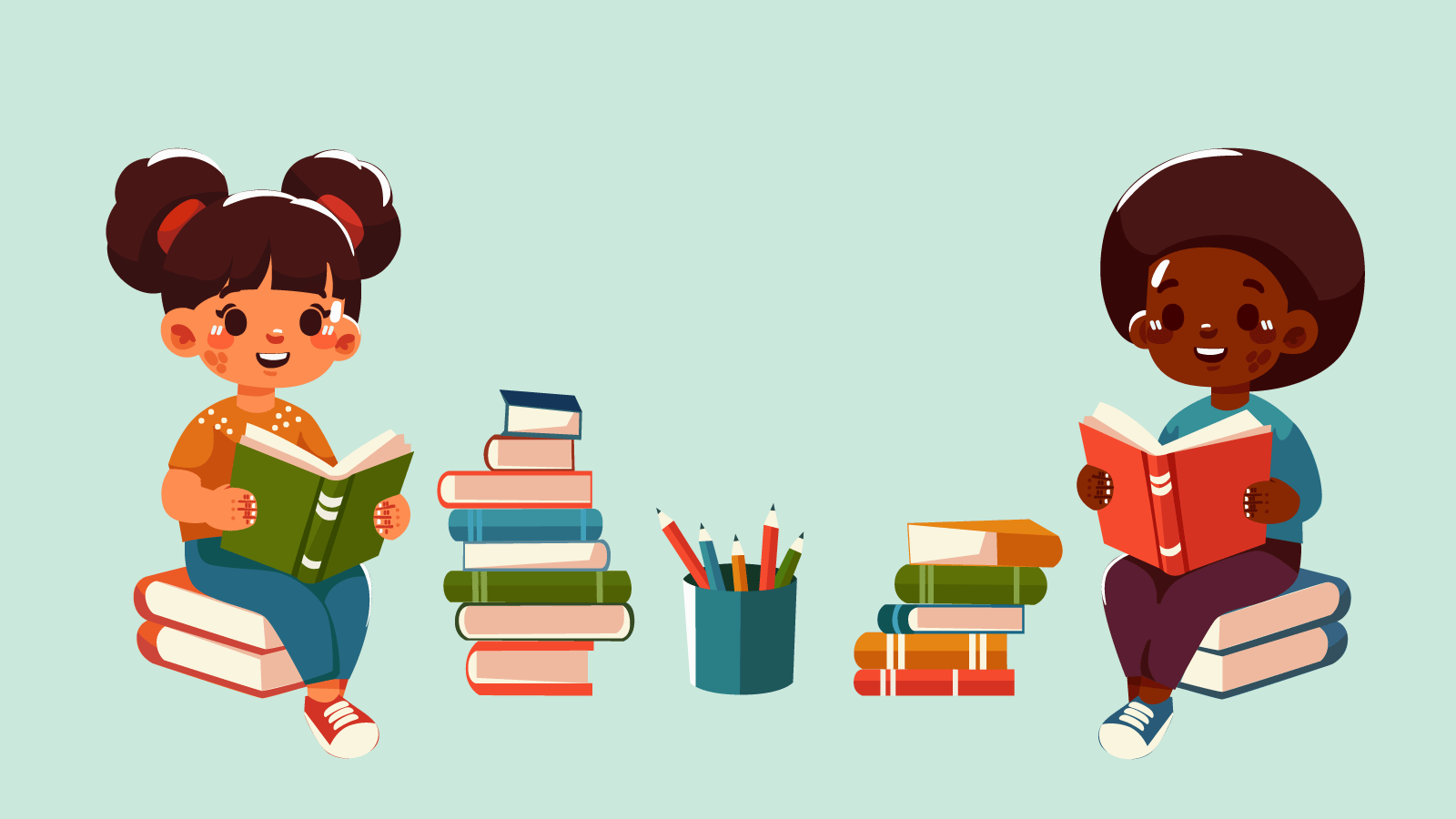Sentence construction Normal Reading Comprehension Worksheets for Ages 6-7
4 filtered results
-
From - To
Boost your child's reading and writing skills with our Sentence Construction Normal Reading Comprehension Worksheets designed for ages 6-7. These engaging worksheets help young learners understand how to form proper sentences while enhancing their comprehension abilities. By focusing on age-appropriate texts, children practice sequencing, vocabulary, and grammar. Perfect for both classroom and home use, our worksheets make learning interactive and fun. With a variety of tasks ranging from simple sentence-building to understanding context, kids build a solid foundation for future reading proficiency. Equip your child with essential language skills for academic success with Kids Academy!
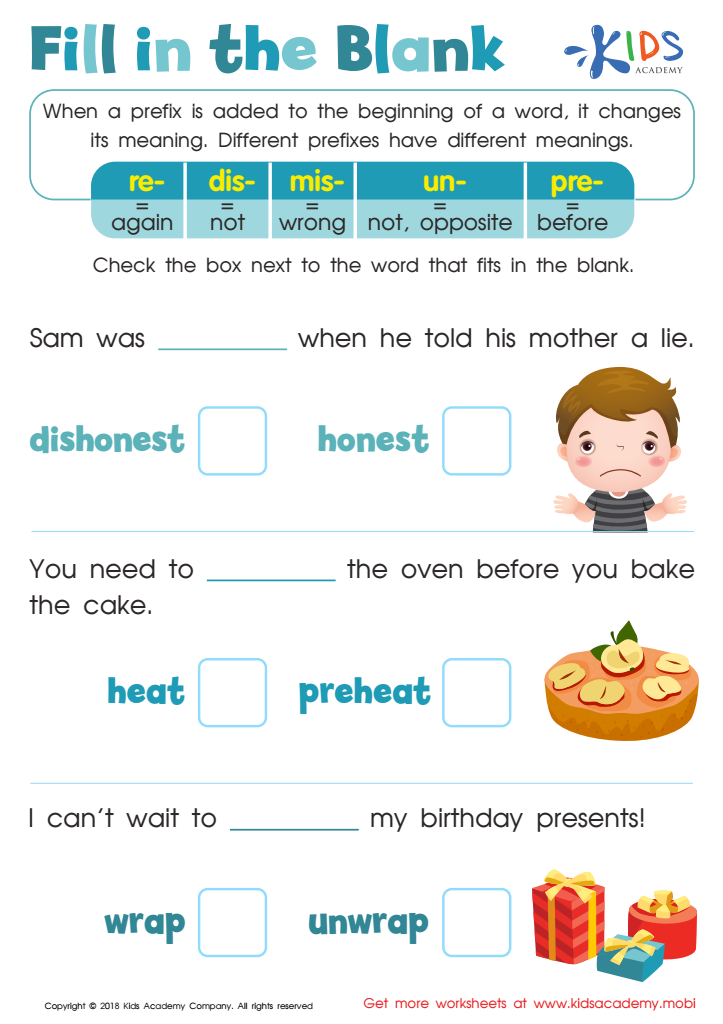

Reading: Fill in the Blank Worksheet
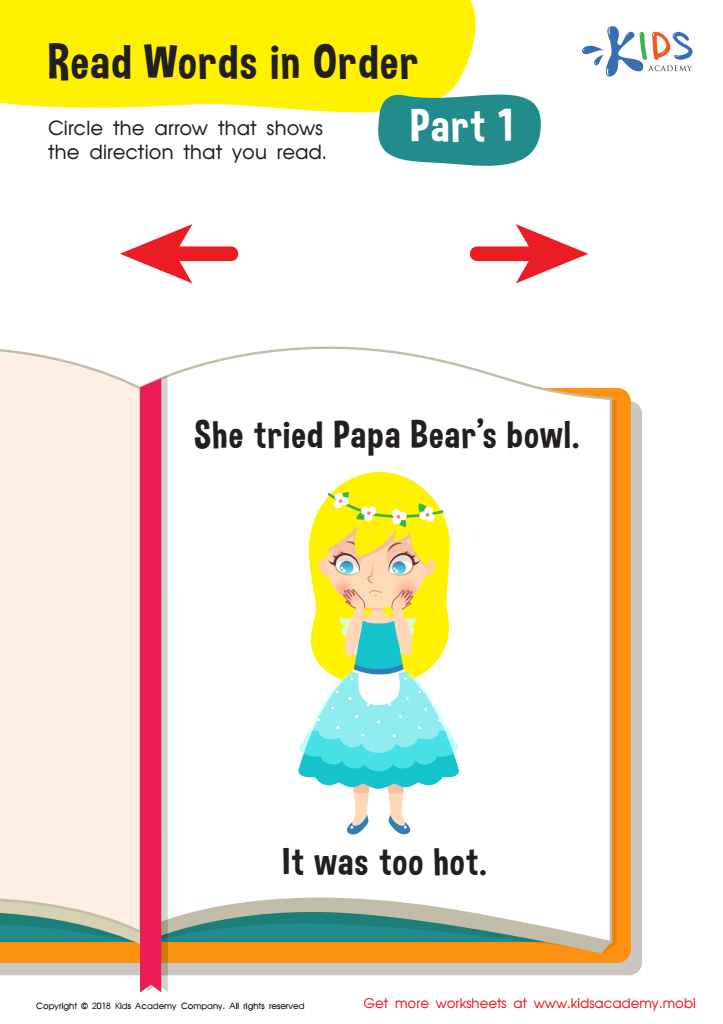

Read Words Order Part 1 Worksheet
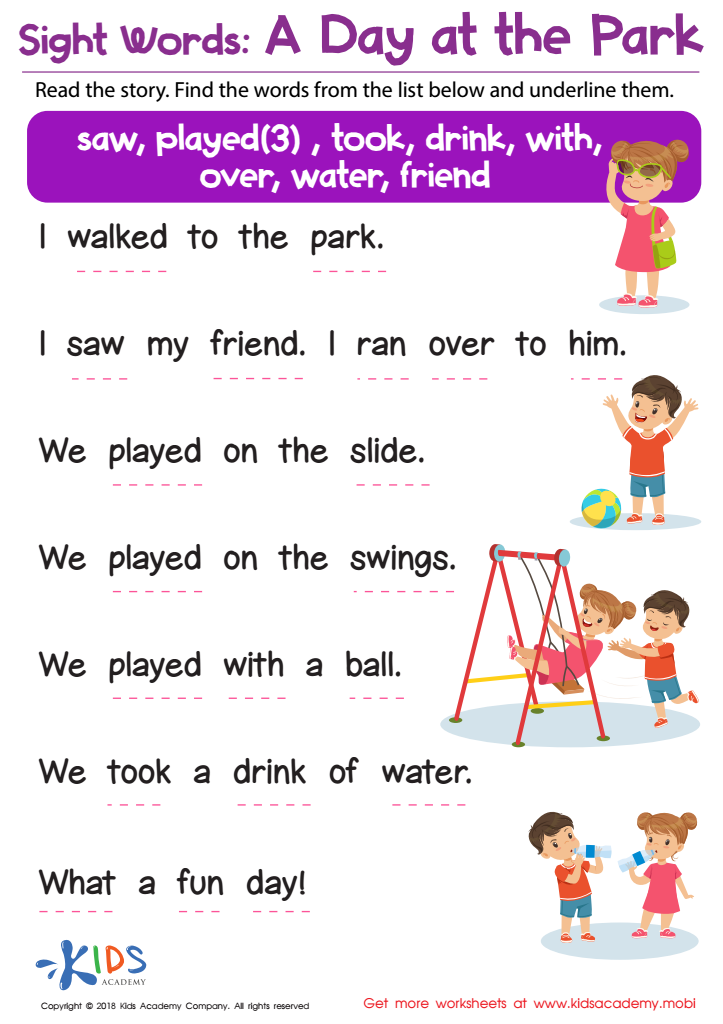

Sight Words: A Day at the Park Worksheet
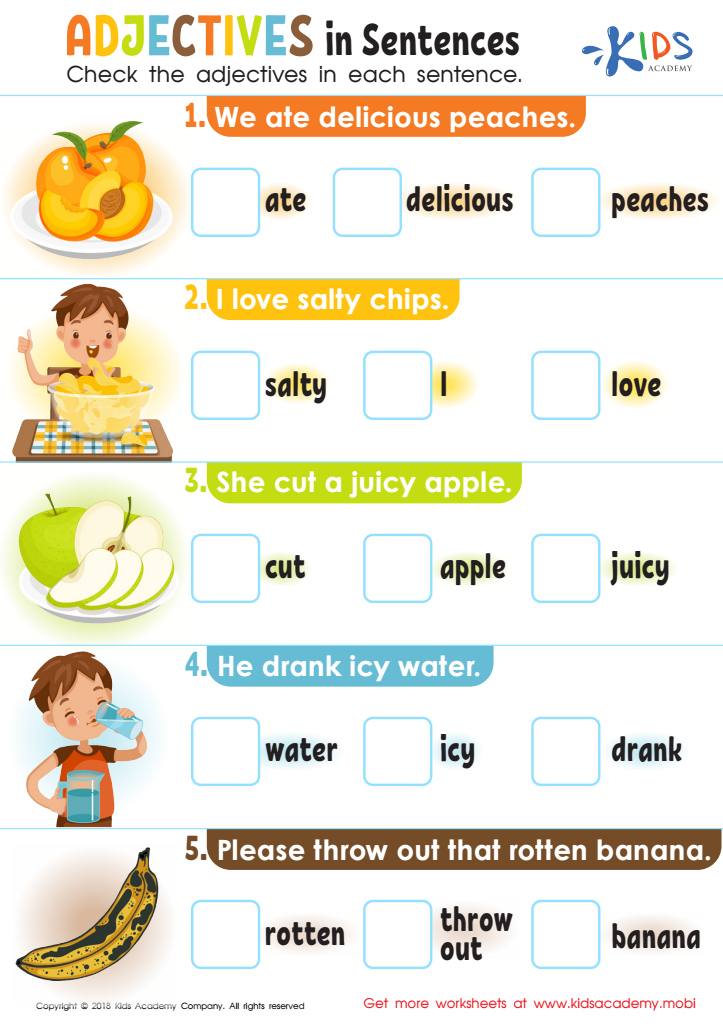

Adjectives in Sentences Worksheet
Understanding and emphasizing sentence construction and normal reading comprehension in children aged 6-7 is crucial because these skills form the foundation of effective communication and learning. At this age, children are transitioning from early literacy skills to more advanced reading and writing. Strong sentence construction abilities enable children to express their thoughts clearly and logically, impacting their spoken and written communication across all subjects. It fosters critical thinking and helps them understand how different ideas connect, encouraging coherent storytelling and dialogue.
Reading comprehension, on the other hand, is vital for absorbing and interpreting the information presented in various texts. It allows children to make sense of stories, instructions, and content in educational materials, aiding their learning across subjects like science, history, and math. Comprehension skills nurture a child’s ability to ask questions, make predictions, and infer meanings, which are vital for active learning and problem-solving.
By valuing and enhancing sentence construction and reading comprehension, parents and teachers empower children to be more imaginative, articulate, and confident learners. These foundational skills promote academic success, cultivates a love for reading, and prepares children for more complex language demands in the future, ensuring their continued educational growth and personal development.
 Assign to My Students
Assign to My Students









